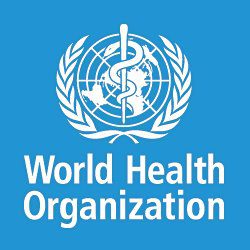Scientists, environmentalists and key stakeholders in the health sector will be among the over 300 delegates from Africa and Europe expected in Nairobi this week to address environmental health risks that may pose a big challenge in the realization of Universal Health Coverage (UHC).
The government through its Medical Research Institute (KEMRI), in collaboration with United Nation Environmental Programme (UNEP), local and international organizations, is the convener of the two-day conference scheduled for 2-3 December in Nairobi.
Air pollution and climate change are some of the major risks the delegates will address at the conference since they stand out as the greatest threat to human health and development, especially in the developing nations.
The conference is expected to review the impact of Greenhouse gas (GHG) on the health of people, animals and vegetation, including food crops in the region.
Climate drivers that affect health include fine particulate matter (including black carbon which is a strong warming agent) and methane, which contributes to the formation of ground-level ozone or smog.
According to WHO. Climate change is the greatest challenge of the 21st Century, threatening human health and development since it threatens access to clean air, safe drinking water, and nutritious food supply, safe shelter, increased spread of mosquito-borne diseases like malaria and other noncommunicable diseases such as mental health and cancers.
In Kenya, diseases of respiratory system, largely caused by household air pollution (HAP) is the top five leading causes of death and accounted to 42% of the disease burden as at 2014.
It is estimated to be responsible for over a quarter (26%) of all deaths in Kenyan hospitals.
Globally, 23 percent of all deaths and 26 percent of deaths among children under age 5 are due to preventable environmental factors.
It is now recognized that pollution (water, air, soil and chemical) are the biggest environmental cause of disease and premature death in the world and disproportionately kills the poor and the vulnerable, according to the World Health Organization (WHO).
According to the Director General of KEMRI, Prof. Yeri Kombe, the conference will provide a roadmap for domestication and operationalizing of the Nairobi Agreement for the next 2020-2025 in all the countries represented, with an aim for mainstreaming climate change adaptation into the health sector, and increasing the resilience of health systems.
“We intend to emphasize the importance of prioritisation of a coordinated national health and environment research agenda in order to support evidence-based policy and intervention formulation,’’ asserted the Director General adding that Increased linkages and collaboration between the multiple key stakeholders in health and environment sectors, was key to achieving the UHC.
JK/as/APA


